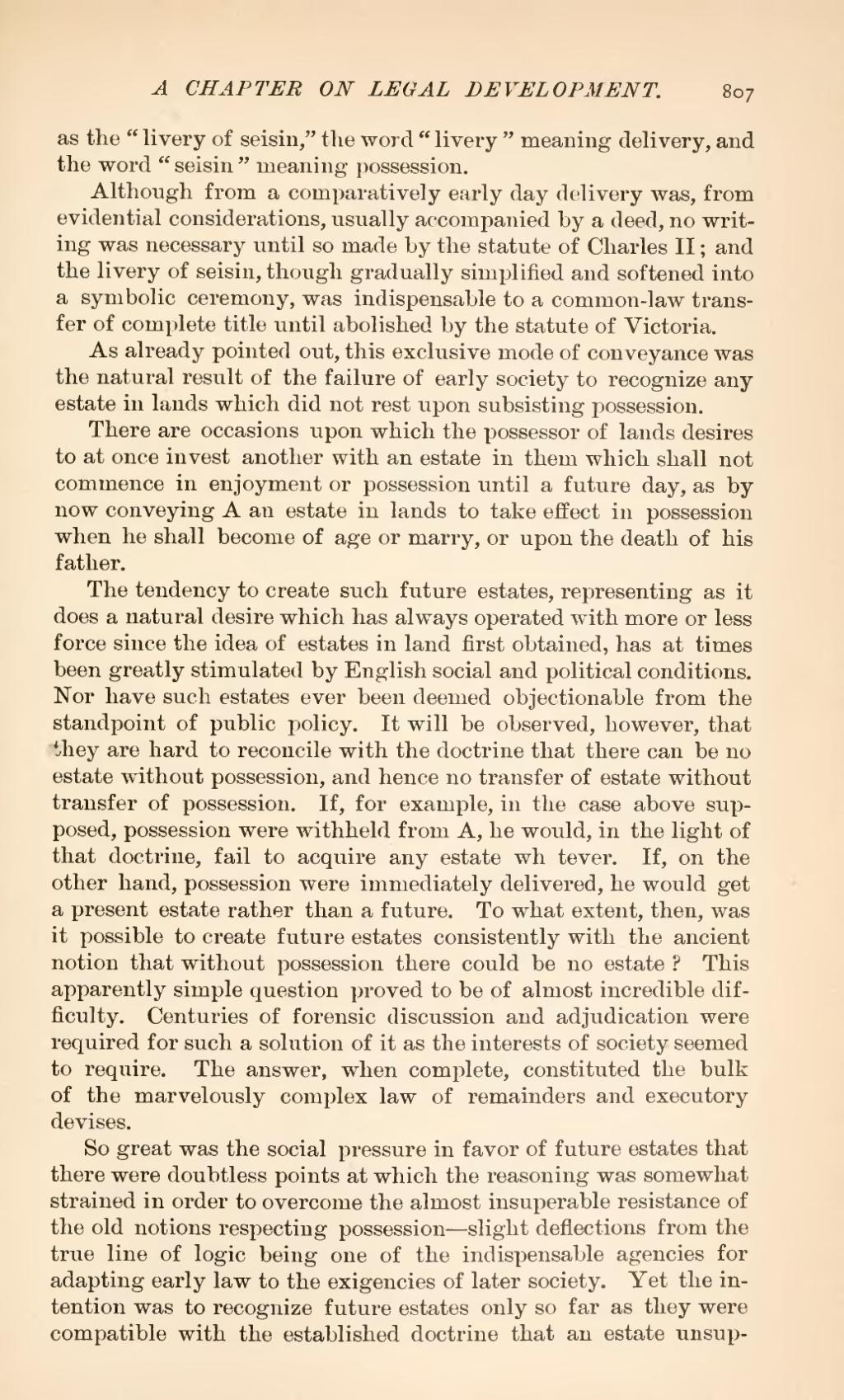as the "livery of seisin" the word "livery" meaning delivery, and the word "seisin" meaning possession.
Although from a comparatively early day delivery was, from evidential considerations, usually accompanied by a deed, no writing was necessary until so made by the statute of Charles II; and the livery of seisin, though gradually simplified and softened into a symbolic ceremony, was indispensable to a common-law transfer of complete title until abolished by the statute of Victoria.
As already pointed out, this exclusive mode of conveyance was the natural result of the failure of early society to recognize any estate in lands which did not rest upon subsisting possession.
There are occasions upon which the possessor of lands desires to at once invest another with an estate in them which shall not commence in enjoyment or possession until a future day, as by now conveying A an estate in lands to take effect in possession when he shall become of age or marry, or upon the death of his father.
The tendency to create such future estates, representing as it does a natural desire which has always operated with more or less force since the idea of estates in land first obtained, has at times been greatly stimulated by English social and political conditions. Nor have such estates ever been deemed objectionable from the standpoint of public policy. It will be observed, however, that they are hard to reconcile with the doctrine that there can be no estate without possession, and hence no transfer of estate without transfer of possession. If, for example, in the case above supposed, possession were withheld from A, he would, in the light of that doctrine, fail to acquire any estate wh tever. If, on the other hand, possession were immediately delivered, he would get a present estate rather than a future. To what extent, then, was it possible to create future estates consistently with the ancient notion that without possession there could be no estate? This apparently simple question proved to be of almost incredible difficulty. Centuries of forensic discussion and adjudication were required for such a solution of it as the interests of society seemed to require. The answer, when complete, constituted the bulk of the marvelously complex law of remainders and executory devises.
So great was the social pressure in favor of future estates that there were doubtless points at which the reasoning was somewhat strained in order to overcome the almost insuperable resistance of the old notions respecting possession—slight deflections from the true line of logic being one of the indispensable agencies for adapting early law to the exigencies of later society. Yet the intention was to recognize future estates only so far as they were compatible with the established doctrine that an estate unsup-
